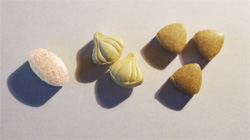Travel Bugs: Everywhere but Planes
Given the results of this study, where would a person most likely pick up a bug while traveling? Remember, the results of the air and physical locations of the plane that were tested and sent for analysis showed no measurable respiratory viruses of any kind, so the authors speculated about the most likely locations for picking up a virus. They believe you’re more likely to find a bug in transportation to the airport and then to the hotel. Or in the airport at a restaurant or store. In the gate area where people are less confined. In bathrooms where people are more likely to spread the virus to surfaces.
In other words, you can pick up a virus just about everywhere you can imagine but the plane. It’s a good idea to pay the closest attention outside the plane—keep your hand sanitizer handy and wash your hands often—and then don’t worry so much about the inside. Kids are a germ magnet at any time, so be extra vigilant when traveling.
You can also do what I do beginning the day before I leave for a trip: start taking echinacea, garlic, and extra vitamin C to boost your immune system. That’s my way of avoiding respiratory infections or any other form of illness when I travel. After 20 years on the road, it still serves me well. Get the details in the Health Info section of DrChet.com: Immune Boost 1-2-3. In it you’ll learn all about how to tune up your immune system to get ready to meet new germs and viruses, along with the latest info on echinacea, and one more step you can take to get your insides ready to hit the road.
What are you prepared to do today?
Dr. Chet
Reference: www.pnas.org/cgi/doi/10.1073/pnas.1711611115

